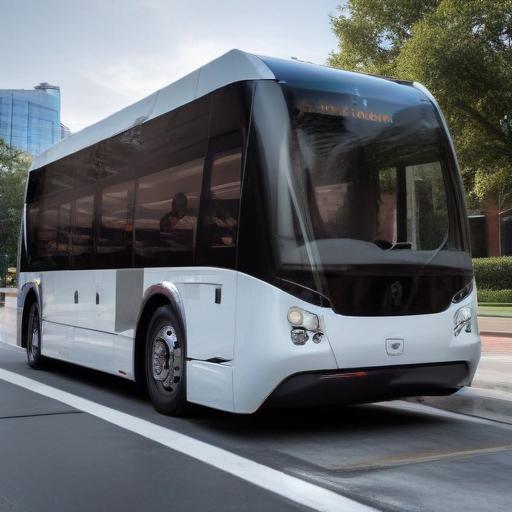A new 12-month trial program is set to kick off in Atlanta, partnering with Beep, the same Florida-based company responsible for operating the self-driving Cumberland Hopper shuttles in Cobb County. The Beltline’s President and CEO, Clyde Higgs, emphasized that this pilot serves as an exploration into optimal transit solutions along the 22-mile Beltline loop that encircles the city.
Consultants have suggested the use of Beep’s autonomous buses over other options like light rail, although city officials remain dedicated to introducing rail service on the entire trail. As part of this trial, the pilot program will feature repurposed Ford passenger vans equipped with autonomous technology, rather than buses. Each shuttle has the capacity for 10 passengers, two more than the Hopper shuttles, and will include an attendant to assist riders. Importantly, the shuttles will operate on roadway areas alongside general traffic rather than directly on the Beltline itself.
The proposed route spans a roughly 2-mile loop intended to connect the Westside Trail and the nearby Lee + White entertainment district to MARTA’s West End station and the Atlanta University Center. Officials have highlighted the route choice as a way to encourage exploration of a lesser-known section of the Beltline.
Shaun Green, the Beltline’s senior transportation engineer, elaborated on the selection process for the pilot, noting that Beep was chosen after evaluating three different companies. The decision was influenced by Beep’s proposal, which did not necessitate new infrastructure, leading to significantly reduced capital costs.
This initiative is set to leverage an existing contract with the city of Jacksonville, Florida, rather than going through a bidding process. Jannine Miller, who heads the regional authority, expressed her enthusiasm about the project’s fast-tracking and the opportunity it presents to explore autonomous transit solutions.
The pilot program represents an innovative step forward in Atlanta’s efforts to enhance mobility and connectivity, showcasing the potential of autonomous vehicles in urban transit. This endeavor not only aims to improve transportation accessibility but also to draw interest to areas of the city that may benefit from increased foot traffic and exploration.
